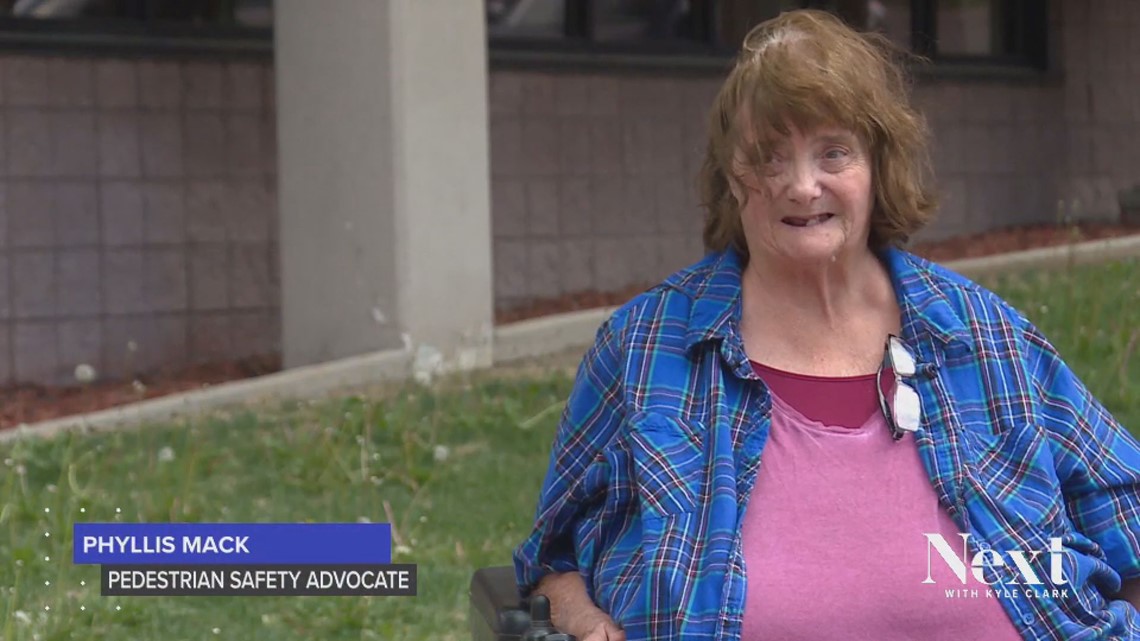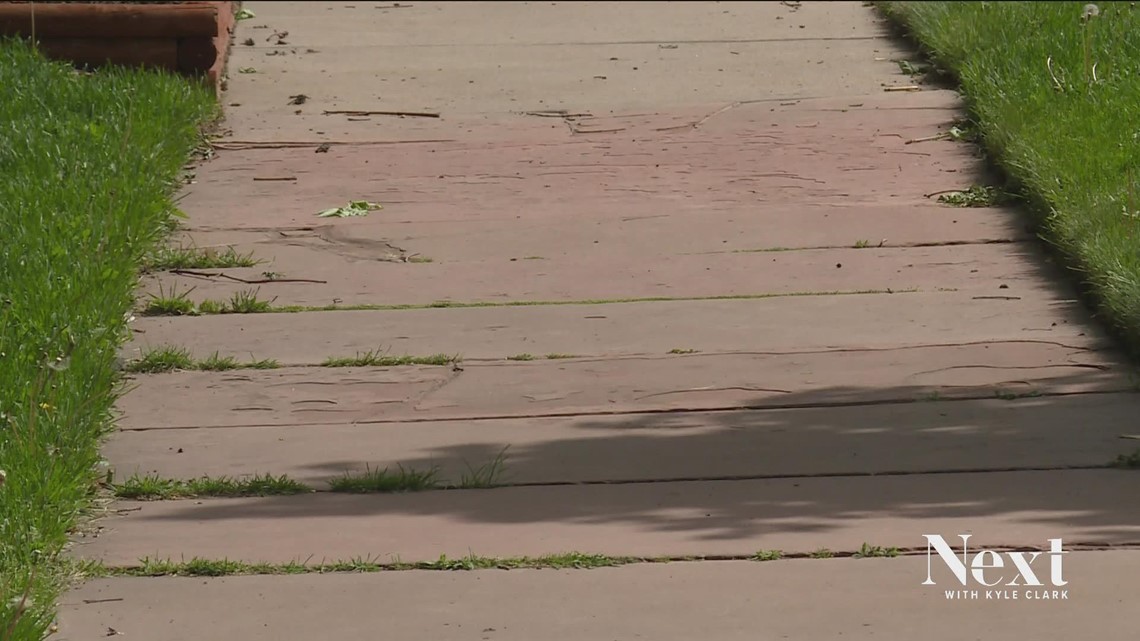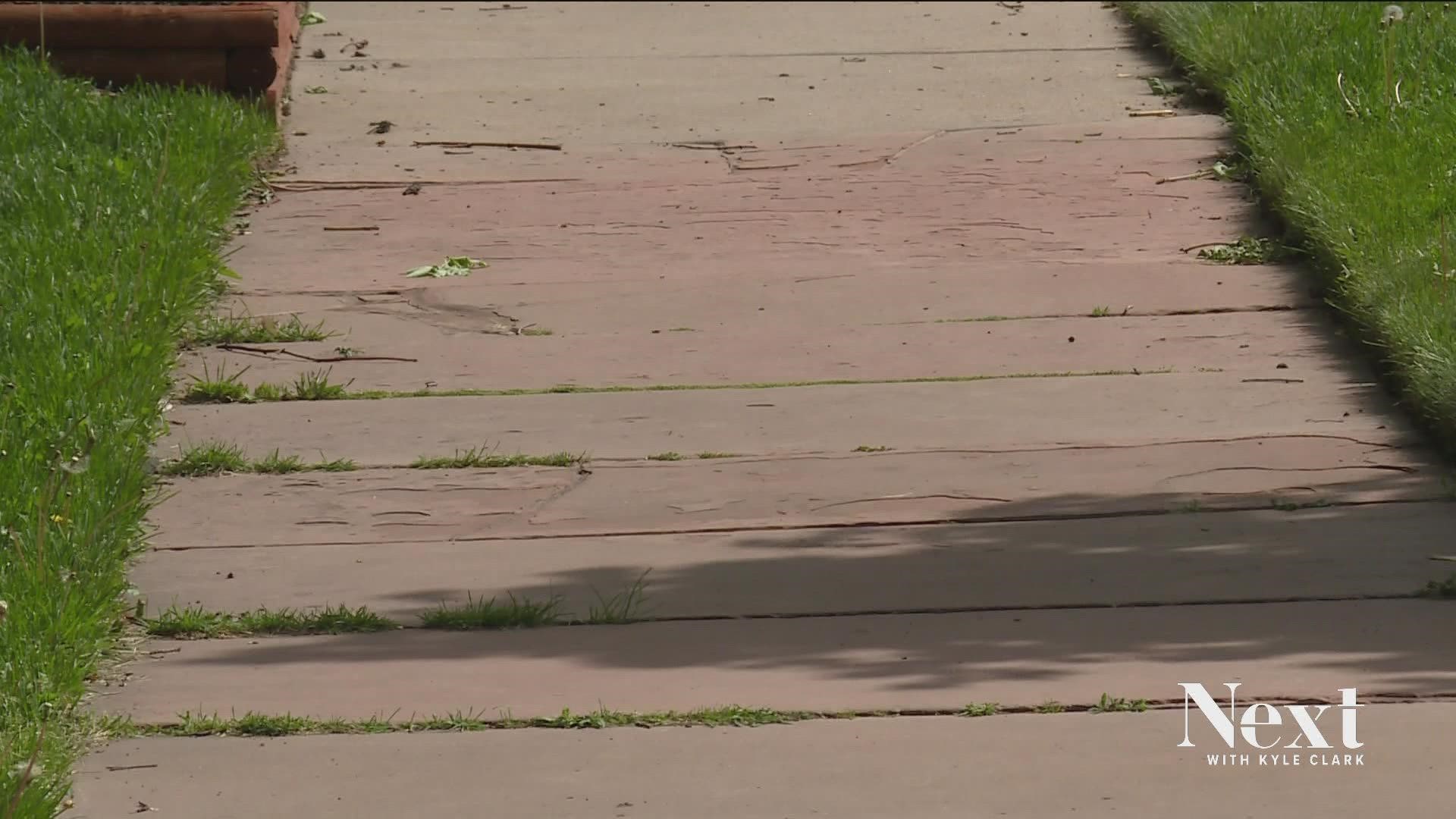DENVER — Fool me once, shame on you.
The city of Denver is rolling out a new program that will charge certain property owners a fee. The fee is for people who want to rent out their property.
It's right on the heels of a different program that failed.
That city program forced certain Denver property owners to pay to fix their sidewalks, until the city stopped doing that.
One program has nothing to do with the other, except it could be a cost that some property owners may experience before others.
"I paid about $850 for them to level it out," said Laura Dean, a homeowner south of Speer Boulevard and Grant Street.
She paid to repair the flagstone in front of her home -- one of 627 homeowners to do so under the city's now paused sidewalk repair program.
"Especially the fact that it happened around Christmastime when I was trying to buy presents," said a frustrated Dean.
Denver's Department of Transportation and Infrastructure (DOTI) started the program in 2018, and paused it in 2020. According to DOTI spokeswoman Nancy Kuhn it was paused "in light of the economic downturn created by the pandemic and resulting financial hardships."
DOTI created 11 regions of the city, and originally planned to inspect sidewalks in one region a year, taking 11 years for the repairs to cycle through the entire city.
It was paused in region one.
"I definitely am a proponent of the [American with Disabilities Act], and I do believe that we should have sidewalks that are working and safe for people," said Dean. "But if no one else in the city is having to do this. That doesn't seem very fair."
"Sometimes my chair will stop on me and I'm stuck unless somebody helps me," said pedestrian safety advocate Phyllis Mack.
Mack gets around her Ruby Hill neighborhood in her electric "scooter chair." But she often finds herself riding in the road because the sidewalks in her area are small.


"Oh no, there's no way because the cars are up to the curb," said Mack. "It's very dangerous."
Mack is part of an effort to collect signatures for a ballot issue for Denver voters to consider in November. The ballot issue would add a fee that all property owners would pay, to repair and build sidewalks throughout the city.
The fee would depend on what type of street the property is near (collector or arterial). According to the proponents of the ordinance, the typical fee for a single family home on a local street, with a 50-foot property frontage, would be about $107.50 a year.
That proposal would not include a reimbursement for those in region one that already paid to repair the sidewalks in front of their own home.
According to Kuhn, the city has not finalized how or if the city program will continue, so she could not say if property owners who have already paid for repairs would be reimbursed by the city, should other property owners not be held to the same standard.


Separate from the separating sidewalks is the new program to license property owners renting their properties in Denver.
"Licensing is not required until January 1st, so we're about eight months away from licensing being required," said Eric Escudero, spokesman for Denver's Department of Excise and Licensing.
Starting January 2023, multi-unit property owners that want to rent their units, including apartments, will need to have a rental license in Denver.
Starting January 2024, single-family property owners that want to rent their homes will also need a rental license.
There are multiple fees.
The application fee is $50. Right now, the fee is cut in half for any property owner who wants to get in early before 2023 or 2024.
"The benefit is that people can get a discount," said Escudero.
But who is to say that this program will not face the same fate as the sidewalk program? Where some pay and others will never have to pay?
"You compare two government programs, it's really comparing apples to oranges," said Escudero. "When it comes to a government program or if you're buying a stock or if you're starting a business, past success or failure doesn't predict future success or failure."
There are other fees, as well.
The licensing fee depends on the number of units, starting at $50 for one unit.
Then, there is an inspection fee. Units must be inspected by a private inspector.
"Private inspectors will go out, people will have to have an inspection and that house is going to have to have minimum housing standards," said Escudero. "There's going to be a cost for people who have properties they're renting out, that aren't safe, that have black mold or whatever the issue that could negatively impact someone's health. Yes, there is going to be a cost associated with having minimal housing standards."
Opponents of the licensing believe the costs will simply be passed on to tenants. Escudero points out that the license requires proof the property is livable.
"Don't they deserve to be safe? Don't they deserve to live in a home that they know has functioning water? Has a functioning heater? And they're not going to have an issue with carbon monoxide poisoning? Things like that," said Escudero. "We're going to have enforcement tools on the internet to see where properties are being rented, and we're going to be able to crosscheck that to see if it's licensed or if is not licensed."
SUGGESTED VIDEOS: Full Episodes of Next with Kyle Clark

